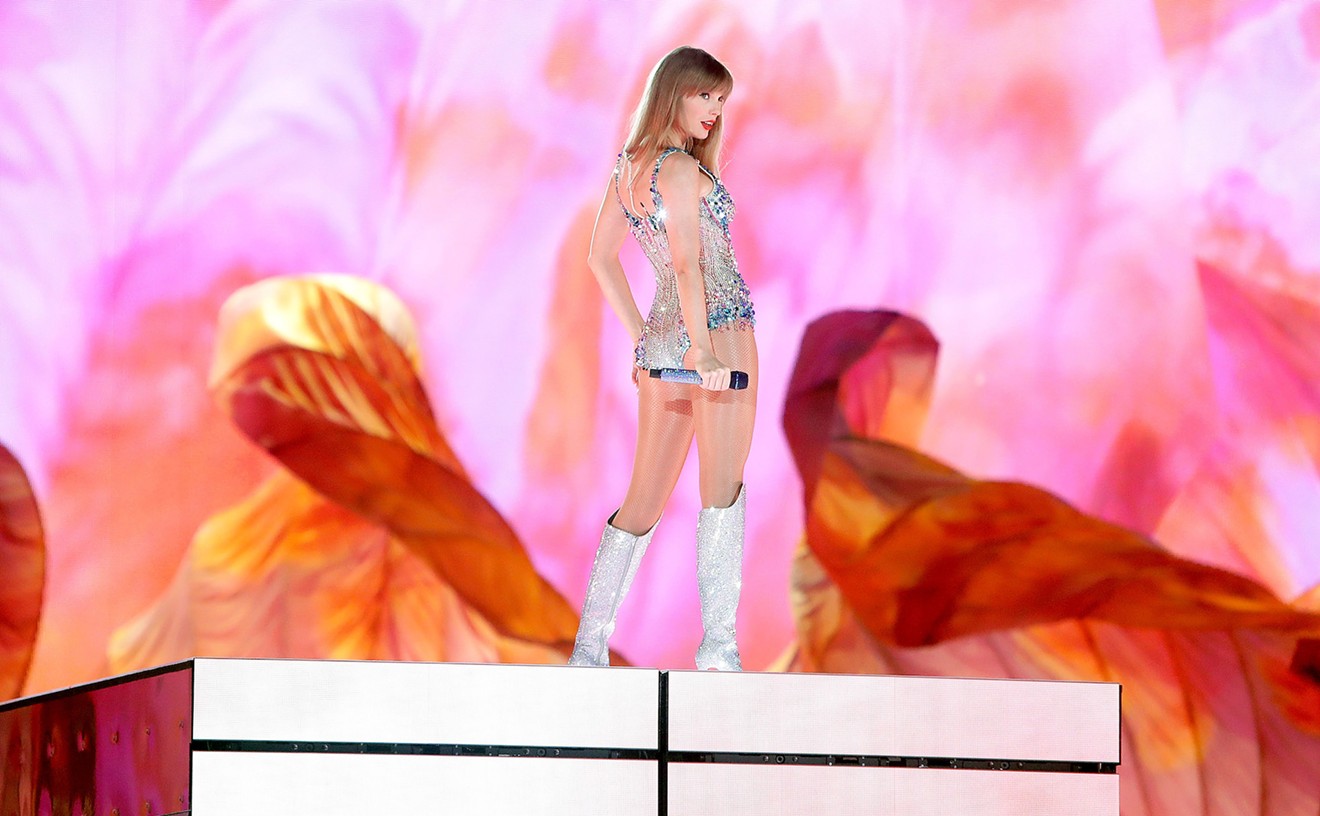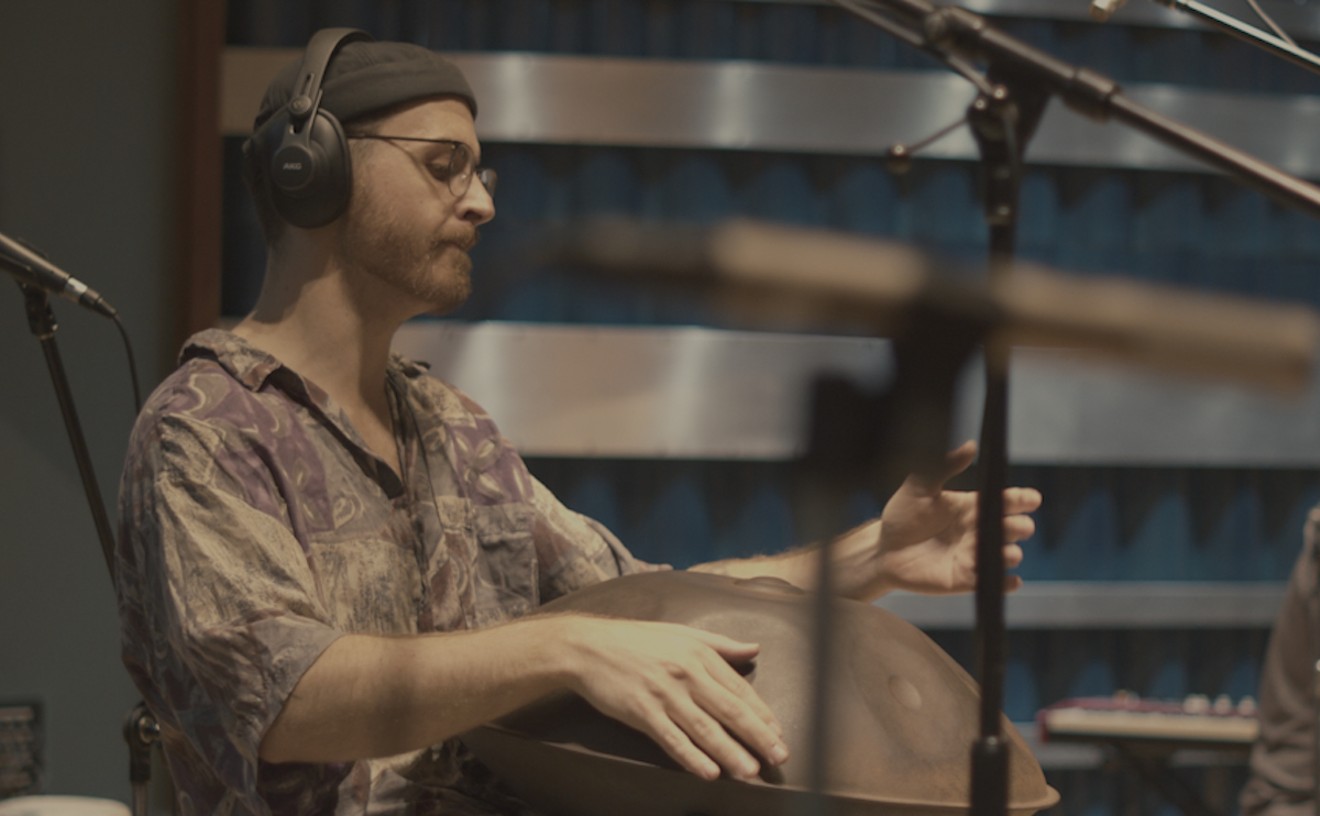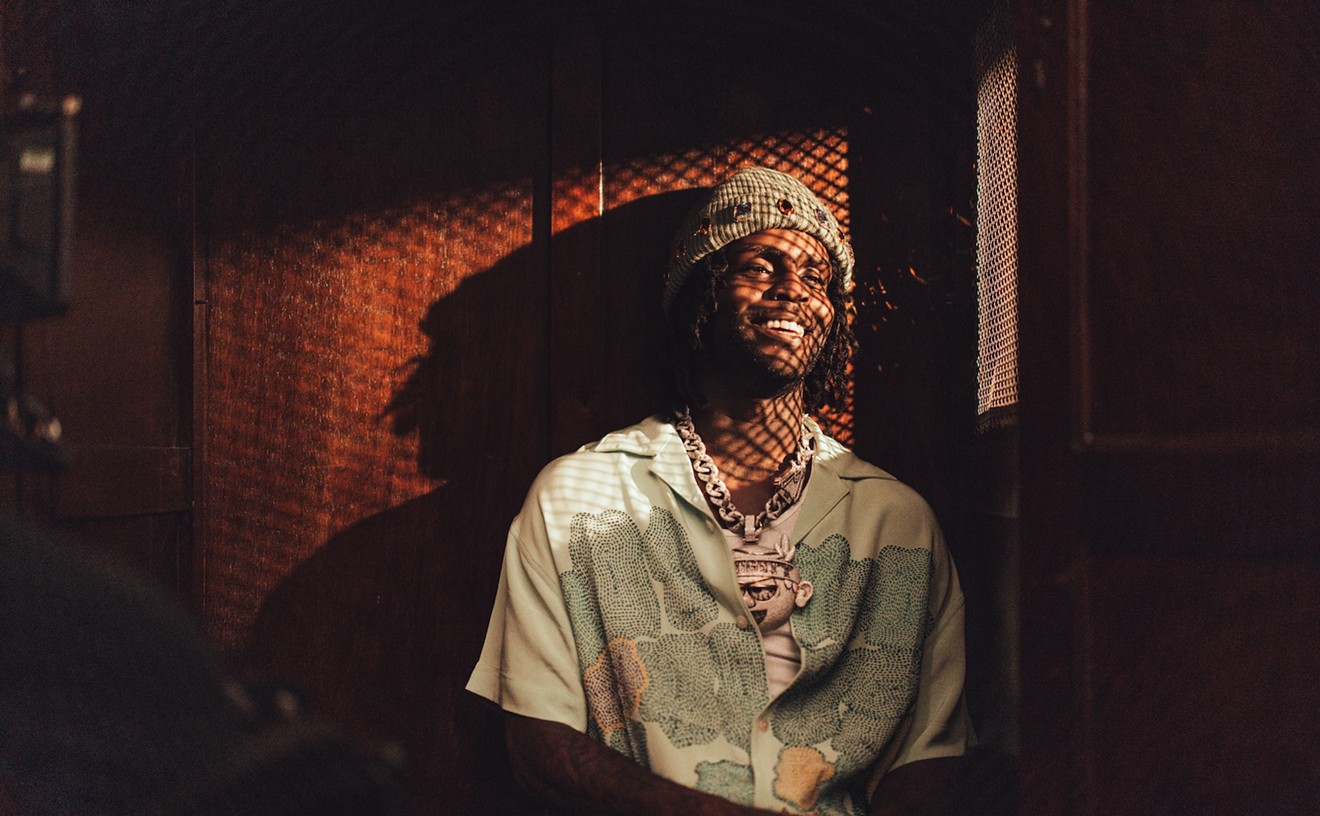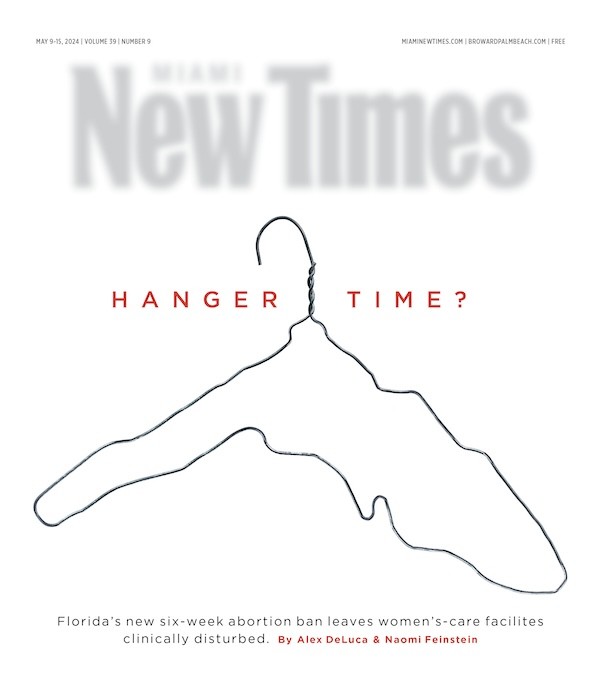To the uninitiated, the Massachusetts quartet Converge can be downright terrifying. And it's not because they appear clad in face paint or leather and chains — this underground punk-bred foursome would never waste time on costume-like trappings. They are scary because they are so physically unassuming, but so loud, and so clearly do not give a fuck.
And neither does their crowd, famous for starting pits where you should beware the skinny, nerdy guys as much as the fat, tattooed ones. (You should always beware a pit whose would-be participants do quadriceps stretches in preparation.) Converge's hell-raising squall of noise inspires stage-diving by grown-ass men, the midshow resetting of fans' broken noses, and occasional "headwalking," which is pretty much what it sounds like.
But peel back the layers of scariness — which frontman Jacob Bannon is cagey about acknowledging — and you get closer to the core of why this band's fans are so passionate. Simply put, Converge is on some next-level planet. They might have been hardcore at one point — and generalist music media might still try to paint them as such. Surely, the hardcore ethos still informs the methods to their madness. But it isn't really straight-up metal either.
Oh, there's enough technical wizardry from the cast — drummer Ben Koller, bassist Nate Newton, and guitarist Kurt Ballou are hailed as demigods of their respective instruments. And Bannon's lyrics are obtuse and artistic without being overly pretentious (if only he could have passed on that finesse to some of his musical progeny). But with Converge, there has always been too much art for the knuckle-draggers just waiting for the next two-step, and way too much spastic energy for the art-metal purists.
Thus Converge has become a band by misfits, for misfits — the fan base has continued to grow, steadily, throughout the band's now near-20-year history. And their slot on this bill opening for two of the biggest current mainstream-popular metal acts, Dethklok and Mastodon, cements their reputation as a draw in their own right.
Though a certain hardcore contingent of fans might always see the band's 2001 album, Jane Doe, as a hard-to-beat magnum opus, the band's latest disc for Epitaph Records, Axe to Fall, shreds pretty damn hard. The galloping riffs of opening track "Dark Horse" exude a serious old-school thrash feel, with Bannon often swapping his trademark near-screech for a more guttural yell. Late in the album, too, things take an almost doom-metal, sludgy bent, with a particularly lovely track, "Cruel Bloom," featuring Tom Waits-esque guest vocals by Steve Von Till of Neurosis.
New Times recently reached Bannon by phone at the headquarters of his record label, Deathwish, which handles special vinyl releases for Converge and other bands. He chatted about the Converge legacy, Axe to Fall, and the band's current tour with Dethklok and Mastodon, which lands at the Pompano Beach Amphitheater this Saturday.
New Times: I saw you guys play at the Scion fest in Atlanta last February, and one thing I noticed was that you were a little less physically confrontational with the audience. You didn't seem to step on anybody's hands or hit anybody if they got in the way. Was it just an off day, or is that a conscious change in your performance style?
Jacob Bannon: I don't mean to do that. If someone's hand is in the way, I guess that would happen. That stage has a makeshift barrier; it's a bit dangerous to play on. So it's difficult to be able to interact with the audience as you want. It makes having a fairly physical hardcore show a bit difficult. All venues impose their challenges.
Speaking of venue challenges, where you're playing here in South Florida has a pretty rigid setup: an outdoor amphitheater with a little room in front and then a bunch of bolted-down seats. When you're so physically separated from the audience like that, do you feel like it's still the full Converge experience?
It's a different energy, a completely different animal. We've done it both in Europe and here, and in Japan too, for that matter. It's just different than your typical hardcore show that has your typical venue capacity of 500 to 700 people, tops. But we're appreciative of the fact that we're invited to do these things. What I find to be ironic is that bands tend to feel more reserved on these big stages, at least metal bands. We still enjoy it; as long as we can engage people, it's OK.
We've played one day with Slayer at a place that holds 5,000 people, and the next day we'll play a basement show. We do that intentionally, because we have fun doing it. We're not one of those bands that looks at rooms as a stepping stone or something like that. We're a hardcore band; we're a punk rock band that has the ability to cross over.
It seems like one common thread about the live Converge experience is that people tend to expect this element of danger.
Yeah... I mean, we don't try to focus on that. Other people do, I guess. We don't really care about that. We just enjoy playing. It's about sharing our songs and music with people who appreciate them and relate to them. It's nothing more than that. If people want to be overdramatic about any other aspect of it, to each his own, I guess. It doesn't really concern us.
On to Axe to Fall, your new album. The first impression you get, listening to the first few tracks, is how thrashy it sounds.
The last album also was a bit, I guess, thrashy, yeah. No Heroes definitely had that aspect to it as well. You just evolve and progress and write songs that interest you. And for us, this record has a lot of a certain dynamic to it. There's definitely an unrelenting part that's a bit abrasive and intense. Our approach musically has always been that way, or at least has evolved into that over the last 19 years or so.
What do you mean by that certain dynamic?
There are lots of abrasive records out there, but there is definitely a sonic and melodic flow to this one. We have piano and xylophone for this record, a wide variety of instrumentation that isn't exactly typical for a heavy band per se. We've been doing that for quite a long time, probably since '98 or '99. That's when we started breaking from the traditional band mold in the recording process and doing things that we found to be interesting, that could bring some more life to songs.
When you feel like making a new record, do you sit down and try to write it all at once, or is it more of an ongoing thing over time?
The three of us live within half a mile of each other. Ben lives in Brooklyn, but he'll be moving back soon. So when we get together, it's very concentrated. We'll get together and practice and write for a week or two. Then we'll go back and listen to what we worked on, kind of let it all settle in, then come back again, and start the process over. That's how we've always worked. So even Ben being in Brooklyn hasn't really changed anything; it's only a four-hour drive.
Do you all see each other often when you're not actively working on something for Converge?
At least once during the week, in some form or another. It's more like a family relationship. We're a very tight-knit little group of people in that way. For people who are not used to our social circle, it's probably difficult to get into it.
I have a closer relationship without question with these three guys than I do with my own brother. It's been that way since I was 13 years old. I make no apologies for that; it is what it is. A lot of people have fairly unorthodox relationships with friends and family, and ours kind of revolves around this band and music.
Do you worry at all when writing new material that it's just going to get compared to Jane Doe? That's seen, now, as this sort of post-hardcore epic masterpiece.
What's ironic about that is it wasn't when it came out. I have all the press, and I would say half of it is negative. It's great that people appreciate what we do. But we don't really look back at our records at all. I think that's one of the reasons why we're a band as long as we have been. We've continued to do things that people consider relevant, because we do what we want, not what other people want us to be doing.
----------
Read the full Q&A on Crossfade, New Times' South Florida music blog, at blogs.miaminewtimes.com/crossfade.










